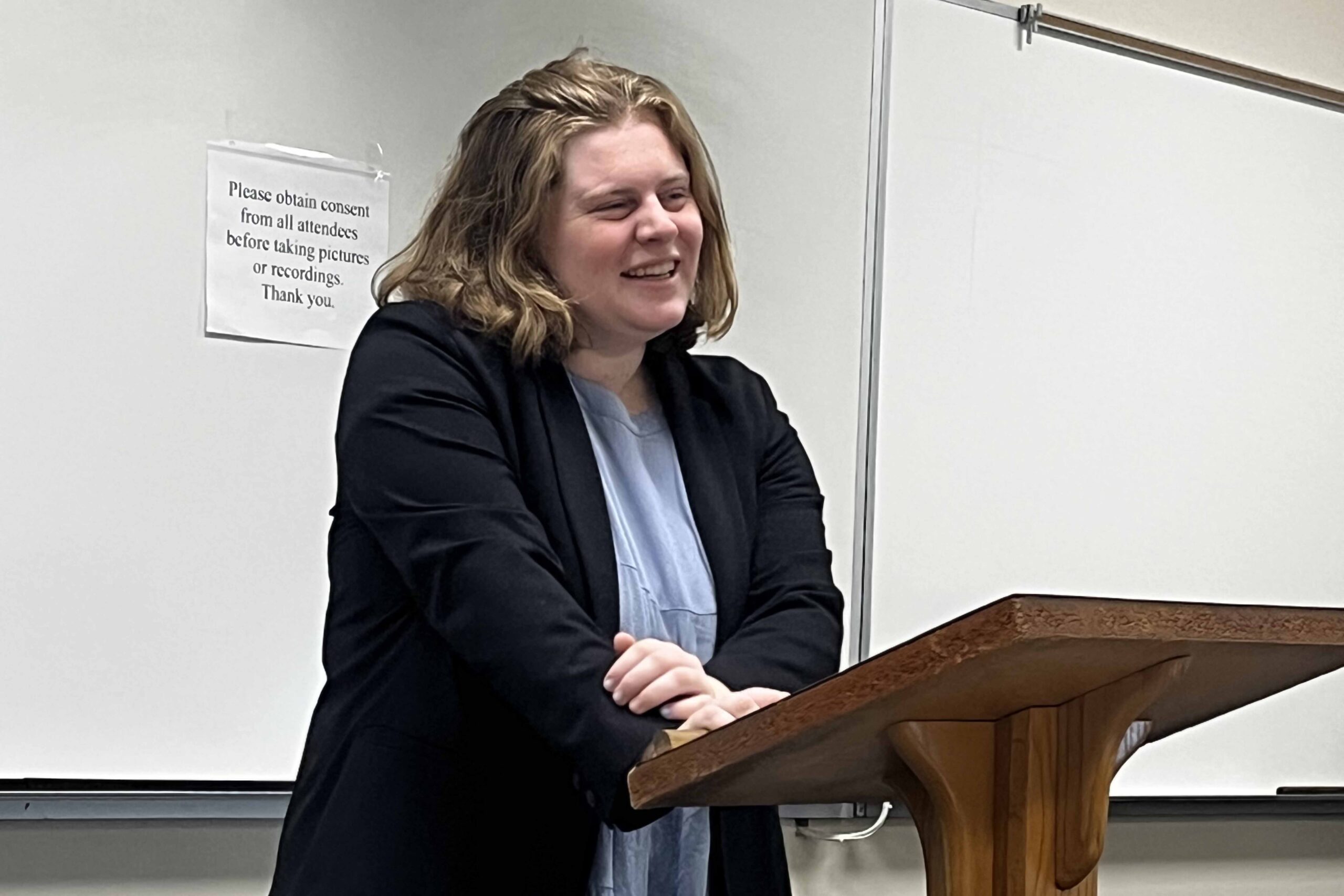Why Major in English at Erskine?
In the English program, you will hone your abilities in communication, critical thinking, and creativity, which will prepare you for a variety of vocations. These skills will also help you develop a creative, perceptive life beyond work. Graduates have entered a variety of fields, including:
- Business
- Law
- Publishing
- Performing Arts
- Ministry
- Teaching
Degree Details: English Major
In the program, you will study language and literature within the contexts of history, philosophy, religion, science, and the other arts.
Areas of Interest
The department offers three areas of interest: creative writing, literature, and English education.
- Creative Writing: In this emphasis you can study both fiction and creative non-fiction alongside courses in composition and literature. You can apply your writing skillset to fields such as communications, copywriting, editing, publishing, marketing, and creative writing. While at Erskine, you gain experience in the craft and conventions of creative writing in various genres, the planning of long-term projects, and professional aspects of writing.
- Literature: A focus on literature prepares you for careers or graduate studies in law, government, library science, counseling, Christian education, and ministry. As you study literature, you will also enhance your abilities in critical analysis, writing, and research.
- English Education: If you are interested in teaching at the high school level, consider pairing your major with an education minor. Erskine has sent graduates to teach locally and as far away as South Korea and China.
Courses
In the major, your courses may include:
- Literary Criticism and Theory
- British Literature
- American Literature
- World Literature
- Fiction Writing Workshop
- Creative Nonfiction Workshop
- Advanced Composition and Grammar
- Shakespeare
- Comparative Literature
Double-majors
Many of our students double-major in English and another subject. The English program is easily customizable, giving you the flexibility to pursue interests in more than one field. Double-majoring allows you to develop skills in one area of interest (for example, business or biology) while honing your abilities in writing, critical thinking, and analysis—three skills employers are often looking for in new hires.
Career Readiness
You’ll develop the necessary skills to excel in graduate studies and in a variety of productive, satisfying careers. Gain confidence in your ability to apply skills in communication and creativity to any path that you pursue!
More Info
Erskine College Admissions
Learn about the application process or get in touch with the Admissions Office.
Careers
“21 Great Jobs for English Majors,” Indeed. https://www.indeed.com/career-advice/finding-a-job/jobs-for-english-majors
“Occupational Outlook Handbook: Field of Degree: English,” U.S. Bureau of Labor Statistics. https://www.bls.gov/ooh/field-of-degree/english/english-field-of-degree.htm
“Occupational Outlook Handbook: High School Teachers,” U.S. Bureau of Labor Statistics. https://www.bls.gov/ooh/education-training-and-library/high-school-teachers.htm
“Occupational Outlook Handbook: Writers and Authors,” U.S. Bureau of Labor Statistics. https://www.bls.gov/ooh/media-and-communication/writers-and-authors.htm








